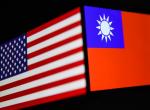Not a million dollar question. Nonetheless it has come to occupy the minds of policy makers, strategists and academics alike of late. Let us set aside the usual details for the sake of space and brevity and examine the factors that are attributed to constrain Japan from adopting the nuclear path. First, let us deal with the peace constitution and three non-nuclear principles. Article 9 of Japan’s constitution prevents it from resorting to force to settle international disputes, which effectively includes nuclear weapons as they are destructive in nature. Prime Minister Eisaku Sato’s administration introduced the ‘Three Non-Nuclear Principles’ – not possessing, not producing and not permitting the introduction of nuclear weapons into Japan – and formalised it in 1971. All the administrations that followed it proclaimed their unflinching adherence to those principles as a part of government’s national policy. But Japanese leaders beginning with Nobusuke Kishi to Yasuhiro Naksone to Taro Aso have always maintained that the ‘Peace Constitution’ does not prevent possession of nuclear weapons for strictly defence purposes. Recently the Democratic Party of Japan (DPJ) government revealed the existence of a document after a probe, which details the secret 1960 agreement between the US and Japan that facilitated US warplanes or vessels carrying nuclear weapons to pass through or make port calls in Japanese territory without prior consultation. Besides, the three nuclear principles are only parliamentary resolutions and never passed as laws. Therefore, constitutional constraints failed to preclude Japanese leaders from entertaining the nuclear option.
The prevalence of culture of anti-militarism is another factor attributed to Japan’s non-nuclear status. The culture of anti-militarism is expressed through public opinion polls, public rallies, mass signature campaigns and protest demonstrations against nuclear weapons. They have been effective to a certain extent till 1970s as Japan Communist Party (JCP) and Japan Socialist Party (JSP) maintained considerable presence in the parliament and organised the masses against nuclear weapons. The dwindling of their numbers in the Diet – as Liberal Democratic Party (LDP) consolidated its position – has weakened it considerably. Moreover, the public attitude towards nuclear debate has also transformed in the recent years. For instance, in October 1999, Shingo Nishimura, the vice-minister of the Japan Defence Agency (JDA) said if Japan fails to possess nuclear weapons, it would leave it open for ‘rape’ in the international system. The ensuing public uproar forced him to resign. But on the other hand, on 9 June 2002, Ichiro Ozawa, then opposition leader asserted if China grows too powerful, Japan’s response can be hysterical as it can produce 3, 000 to 4, 000 nuclear warheads with the available plutonium. On 30 November 2006 Foreign Minister Taro Aso said that Japan was capable of producing nuclear weapons and minimal possession of it for defensive purposes was unrestrained under the constitution. Unlike the previous occasions, they faced hardly any public outcry. The muted public reaction not only underscores the changing public perception about nuclear weapons, but also the taboo of discussing nuclear weapons in public is being removed gradually.
The fulcrum of Japan’s security policy – US nuclear umbrella – was never beyond question. Japan perceives that there is an increasing ‘credibility gap’ in the US extended deterrence for Japan in the wake of North Korean missiles and Chinese power projection. Because, the logic is based on this: in a confrontational situation whether the US would risk New York and Washington to protect Tokyo. In the past, such concern only pushed Britain and France to develop nuclear weapons against Soviet threat, despite the presence of US forces in Europe. Japan’s uncertainty over US nuclear umbrella is also strengthened recently during the Senkaku Islands disputes with China; the US instead of supporting Japan, suggested for a bilateral solution.
The questions about Japan’s technical feasibility for producing nuclear weapons lack credibility. Because, Japan being a leader in nuclear power generation not only possesses about 40 tonnes of reactor grade plutonium (RGP), but also has the scientific and technological capability as well as the tools and materials to make highly sophisticated nuclear bombs in short a time. Hence, all these factors, constitutional, anti-militarism, US nuclear umbrella, technological feasibility, although have had a constraining impact on Japan’s nuclear ambitions, they failed to preclude it altogether.
On various occassions, Japan contemplated the idea of nuclear weapons. Following Chinese nuclear test in 1964, Sato commissioned a secret, non-governmental study on Japan’s nuclearisation entitled ‘The Study Group on Democracy’. The study’s findings were summarised in the ‘1968/1970 Internal Report’ to explore the costs and benefits of Japan’s nuclearisation in a comprehensive way. In 1995, the Japan Defense Agency (JDA) conducted an interview review of a potential Japanese nuclear weapons program entitled ‘A Report Concerning the Problems of the Proliferation of Weapons of Mass Destruction’. Though the report was never released, it had a potential plan for a nuclear weapons programme. The latest attempt to contemplate on the nuclear option took place in October 2002, following the revelations about North Korean nuclear programme. The Japanese government undertook a secret study entitled ‘On the Possibility of Developing Nuclear Weapons Domestically’, which examined the technical feasibility of producing tactical nuclear weapons. But the report was leaked to the press later that year.
Even though Japan has always had nuclear ambitions, two possible scenarios can precipitate a nuclear Japan. One, if China extends its naval presence in the high seas and establishes permanent bases in one or more of the islands; two, dwindling US commitments to Japan. Both the scenarios appear to be unfolding lately. The recent increase in the presence of Chinese navy in East-China Sea and South-China Sea as well as its augmentation of power projection capabilities and China’s belligerent postures in resolving its offshore disputes with Japan and Vietnam support this. Further, the rise of China has led to the relative decline in the power projection capabilities of the US as the dominant power in East Asia. The global recession has prompted many European countries to cut their defence budgets and sooner than later the US would have to follow suit, in such a situation, the possibility of Japan’s security being compromised remains high. In addition, the Cold War strategy of keeping a non-nuclear Japan is rapidly losing its relevance, since it is China than Japan that is challenging the US dominance in East Asia as well as in the international system. It would be prudent for the US to support a nuclear Japan to counter China than forestalling it. Japan’s recent attempts to augment its power projection capabilities certainly have the acquiescence of the US as well. Besides, the recent North Korean shelling of South Korean island Yeonpyeong and its continued missile and nuclear weapons programmes threaten Japan’s security, which can also force Japan towards the nuclear path.
The argument that Japan would lose credibility, international stature and good will if it goes nuclear holds little water. Because Japan has already lost its economic pre-eminence to China, any further deterioration of its status in the world affairs would jeopardise its place in the international system. As any other declining state would consider, nuclear option would be relatively cost-effective and technically achievable for Japan not only prevent its decline, but also counter emerging threats. Therefore, the question is not whether but when and under what circumstances.
--------------------------------------------
Published Date : December 3, 2010





_resources1_16a085412ba_large.jpg)



Post new comment